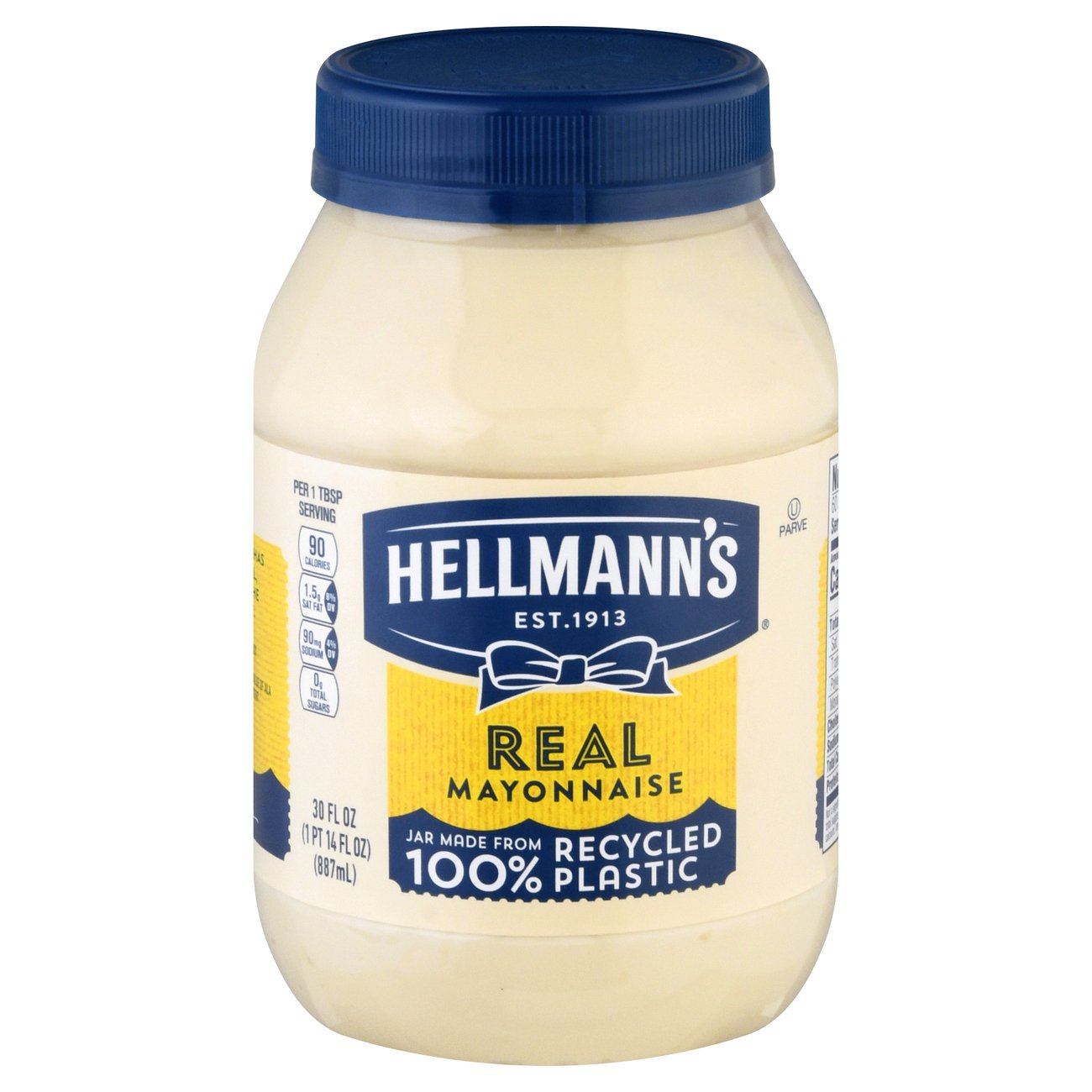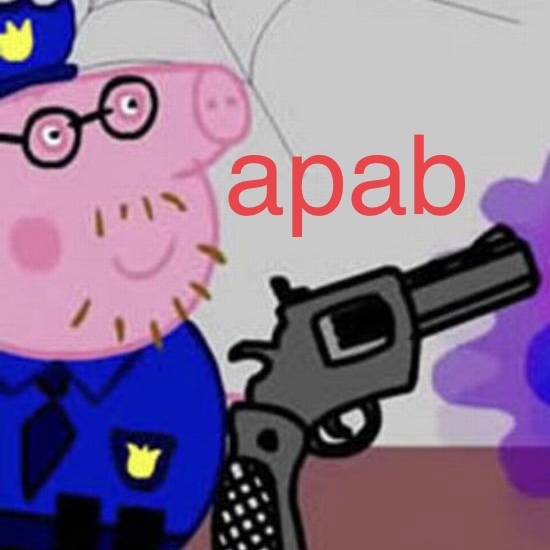While I will post the link to the tweet be aware that there a like 100 blue check bootlickers defending Netflix here https://twitter.com/SaeedDiCaprio/status/1699136050331799627
I've been seeing so much of this specific style of "debunking" lately, where they debunk something no one has said or cares about but it's close enough to the actual thing. It's genuinely slippery af and seems really effective. Like whether it's specifically Netflix that should be paying him royalties was never the point - it's unjust that the owner of Paul's labour continues to rake in cash without compensation.
Another example I recently found of this is this USA Today fact check of whether Biden voted to overturn Roe v. Wade. (Spoilers: he fucking did.) Instead of fact-checking the actual claim they fact check whether he authored the bill himself lol, and then down in the seventh paragraph they say
Biden did vote in favor of it in 1982, however.
Thank you for giving me the name for that! It's so fucking annoying and it's all reddit type debate nerds do anymore.
Yeah I had to look it up a few years ago because I have a friend that does it. They laser in on one minor detail that wasn't phrased correctly in order to distract from the overall point
was supposed to last only one season
if anything this just makes his case stronger, because he was so good they kept him on
Yeah I have no idea why they think that strengthens their point.
I imagine it's supposed to be something like "he got more work than he was supposed to, he should be grateful" bullshit.
The original plan where he died sucked ass, and even Vince Gilligan admitted that and said he's glad they didn't do that.
community note: correct, he doesn't make anything from Netflix streaming
Seriously this doesnt even contradict anything it just works overtime to justify it lol.
I have seen all ehrmantraut-related media, Johnathan Banks seems niceYa know, I looked into it later on, and there aren't actually that many stars visible in New Mexico. He could've seen more in Germany.
Shouldn't AMC (as the rights holders of breaking bad) be the one paying him residuals? He definitely deserves residuals under our current system but I don't think Netflix is necessarily the company responsible for that.
The actual problem is that residuals are based on viewer numbers, and streaming services refuse to publish those (because their stock prices would crash)
That's exactly what they're striking about. Almost all of the long-tail revenue from TV shows past their initial run has shifted away from reruns on network and cable TV (which is covered by their contract) towards streaming services (which, per their contract, they get basically nothing for). That's a total betrayal of the spirit of the agreement that content owners and the creators had - namely, that the people who worked on the shows would also share in some of the long-term profit from the show. What's funny about the community note is how it literally doesn't even contradict any of that - it's just saying "lol, suck it, we take all the profit now because of how the contracts are written".
Aaron Paul may specifically have negotiated more up-front money, at the cost of less residuals. But it's crazy that he would be getting nothing from one of the most popular shows out there, and it means that everyone else who worked on Breaking Bad who was counting on residual income is getting majorly screwed. We tend to focus on big stars who "made it", but tons of working actors, writers and others work on lots of shows, and take worse up-front pay so that they can instead be payed out from a portion of the long term profits. Those people are getting ripped off, and so they're striking to get the contracts changed.
This is all accurate, according to an interview that I listened to with a show-runner. Background actors used to be able to survive on their residuals. Now they get paid for one day of work.
Further, the writing staff has been slashed. A show-runner gets a room of writers for a limited time and then they're mostly let go when the season has been written. They don't get to go on set and learn how shows are made to later become producers and show-runners. The interviewee was pretty explicit about how the studios are setting themselves up to have no "new guard" when experienced people retire.
I'm going entirely on things I've heard and read. I am not in the biz. I might be wrong about details. Feel free to correct me.
So.... I'm not smart enough to remember the exact details about all of this...
There was the writers strike that happened around 2008 and because streaming wasn't that big of a thing, the corporations managed to keep streaming stuff separate from non streaming stuff. (Its one of the things that the current writers strike is about.) So what happened is that when AMC gave Netflix the green light to stream Breaking Bad, there was no requirement in anybody's contract to ensure that they got paid from the deal.
Thank you Netflix CEO reinforcing my decision to get a cheap VPN and just pirate all the shit I want to watch after cancelling my Netflix account.
It's true that Netflix isn't directly responsible.
It's also true that Paul should have made more for his labor given the popularity and how that system seems to work.
Point your anger at capitalism, people. Netflix is small potatoes.
If Netflix isn't then they should be. If I remember correctly a big part of the SAG strike is about online streaming residuals so it is highly relevant that Netflix has paid him $0. Yes Capitalism is bad but you're literally on Hexbear, we already know that.
Hey bully for Aaron Paul, but he got paid more than the crew. Where is even any talk of the residuals for general workers.
General workers should get residuals too, but SAG is actually doing a strike for residuals right now as we are speaking and as communists we should support labor action. Dont do that thing that happened during the video game voice actor strike where people were like "well what about the other people working on the games?". Thats not the point. Those people should get more compensation too. But support the labor action that is actually happening instead of asking "well what about this other group". That just serves the bosses interests.
The compensation for others follows as a natural consequence of some getting it. It really confuses me as there is no temporal aspect to some of these criticisms.
Of course others would fight for their own compensation after seeing that others could get it, there's historical precedent for this. It's unfortunate that it can't happen in one fell swoop and that isn't enough to stop support.
My point is that the SAG strike will eventually end with some individuals ending up in a better situation -- but the system as a whole will be largely unchanged. That will always be the case when the focus is on the individual over the collective.
So we should vaguely angry at a concept, but never at specific organizations that are a part of the class structure that upholds said concept? Not even when they're involved in an ongoing labor negotiation+strike?
.

obv the point isnt "wow netflix is a bad apple but capitalism is the best system we have" it's more "netflix is bad just like every other corporation, they all exploit the working class, solidarity to the striking actors writers, etc"
The "class structure" you mention is also, in this case, an effect of capitalism.
But yes, I guess we agree? I don't really understand the point of calling out Netflix instead of the head of the snake though, if the goal is the same, as you suggest. That's really my only point.
There will be an endless number of these situations until we, as a society, focus on the head of the snake. If we focus on all the individual companies first, nothing changes. There will always be more companies. It's divide and conquer.
on second glance I think we do agree, sorry if that came off too aggro. I don't think this post is meaningfully overfocusing on netflix though. zooming in on an ongoing labor struggle doesnt inherently distract/detract from larger class conflict IMO
I don't think this post is meaningfully overfocusing on netflix though
Perhaps not! But yeah, I also agree with your point about the labor struggle.
I mean, for me, the whole "Its AMC that should be giving him residuals not Netflix" isnt the point. The point is that someone should be paying him residuals. And the community note here denies that he deserves residuals for streaming at all.
I agree with all that. I'm just saying that both parties will point the finger at the other ad infinitum. We should focus on the system that allows them to do that.
Up until recently Netflix was a massive, massive middleman putting a cash price between people and their ability to enjoy their cultures stories.
" putting a cash price between people and their ability to enjoy their cultures stories."

r, fight for a change in law.
I mean, thats what the strike is about. Not law but the contracts.
I do think that AMC not netflix are the ones that owe him residuals
Why should he be earning anything from it at this point anyway? If I'm paid to build a barn for a farmer, I'm not entitled to a percentage of the farmers profits every year he uses the barn. It's his barn, I just worked to create it. If I'm the camera guy on a movie, I don't get residuals for years afterwards. I get paid for my labour and then move on to the next job.
Aaron Paul did a stellar job playing Jessie in Breaking Bad, but why does that entitle him to rent every time the character is shown somewhere? He was already paid handsomely for his labour. Why should he be paid more when he's no longer working on it?
Huh?! This is a shit take and mind bogglingly ignorant. Your logic is even flawed.
How are residuals controversial? In the arts it is standard performers, artists, and writers to get some form of royalty due to their work being so fungible.
If I'm paid to build a barn for a farmer, I'm not entitled to a percentage of the farmers profits every year he uses the barn. It's his barn, I just worked to create it.
Exactly! It's a barn and not a fully fungible product like a painting, photo, music, movie, television show, or book. The barns value is easy to determine and negotiate the price of up front. That farmer can't take that barn the worker builds and copy it literally a billion times depending on how popular it turns out to be with farm livestock. If the farmer wants another barn, they have to hire the worker again.
With products of the arts the fair value of a performer, artist, or writers labor cannot be fully known until after the end product has been distributed and that determination of value is even further complicated by the product being fully fungible.
If I'm the camera guy on a movie, I don't get residuals for years afterwards. I get paid for my labour and then move on to the next job.
For union projects, the producers, which is whoever is paying the crew at any given time, pays an additional percentage based on revenue into what is called the lAP. This is in addition to their nominal pension benefits.
To quote Mao Tse Tung:
NO INVESTIGATION, NO RIGHT TO SPEAK. Unless you have investigated a problem, you will be deprived of the right to speak on it.
The fungability of art and entertainment is not a point I had even thought of before that, because I wasnt really sure how to respond to the barn point myself. Cool.
Yeah. It's not even like software where the value can often be roughly estimated upfront based on features/scope and the end product will always require steady maintenance work to keep in a useable state. A lot of art if successful is an evergreen fungible product, which further separates it from fungible media such as writing by a journalist whose product often only has significant value during the time period of its initial publication.
Am I not allowed to ask questions as part of my investigations?
I personally work in two creative fields (photography and software design) and in neither case are royalties a normal thing. If I take photographs of your new product so you can advertise it or build a website to help you sell it then I'm paid for the job I do, not based on the amount of money you make afterwards. The full value of my creations cannot be determined until years afterwards, but that doesn't change anything.
The value of labour is not always dependent on the value of the finished product. If it was then a truck driver hauling a load of computer parts would be paid hundreds of times more than one hauling grain.
There is nothing wrong with choosing to be paid royalties, but there isn't an automatic entitlement to them on moral grounds. Choosing to sell your labour or creative works for a fixed fee is a perfectly valid option, but if you do you shouldn't complain when the farmer starts using the barn as a restaurant and starts making ten times more money from it
So I'm not really well read at all, but for the sake of learning I'll try to engage.
In your point about the barn becoming a restaurant, one thing to consider is the status of the building does not change without additional labour. This is what would be compensated for and at some agreed upon rate. As well, the nature of how a restaurant works is not the same as a creative work I think. If the barn was considered a piece of art and appraisals were being done, I think that would be a different story and you could imagine there would be some contention over whether the builder would be compensated additionally, perhaps through acknowledgment (which could be the causus belli for the builder and may be vehemently opposed) of their work being the at the very least involved in the cause of the thing that is being appraised.
its not about moral grounds. its about class struggle and the bare minimum for a union is defending hard won gains for the working class. your example with the truckers doesn't translate because no union truckers (that I know of) have had such a battle won that would guarantee residuals on what is being transported. what is not a winnable battle in one sector is a winnable battle in another. the question really is which side of the fight are you on?
if you are a small business owner you are not in the same position as a worker that is part of a union that has a negotiated contract, so I can see how you think you have no leg to stand on when asking for residuals but what it ultimately comes down to is always leverage and with collective action workers have more leverage than you would on the open market as a freelancer, for example
that said, though, there are attempts at unionizing platform freelance workers such as people that work through platforms such as fiver or upwork, etc. i haven't kept up on how well they are going but you could reach out to union organizers where you are located to talk to them about that
If we apply this consistently then Netflix shouldn't be earning anything from it at this point either.
The issue being presented is workers not being paid fairly for their labour, while someone else cashes in on it forever. If everyone involved in the production owned it, then everyone involved in the production would continue to be paid a small amount for the rights to it. If this were music a lot of people would say "yes the artists involved in the production of the art should receive royalties".
My take is that if the art is gated and costs people money to access it, then the artists should be receiving that. But, I also fundamentally disagree with gating art whatsoever, all of this content should be free after the initial release run. And all of the services like netflix could combined into one single centralised government archive of entertainment culture anyone can access at any time for any reason for free.
And all of the services like netflix could combined into one single centralised government archive of entertainment culture anyone can access at any time for any reason for free.
God the DREAM.

Can you imagine? Never again losing a book because the "rights" and"ownership" are unclear so no one will publish it for fear of lawsuit? Not losing movies because some skin suit full of beetles decided it wasn'tprofitable to retain?
Well for one, because residuals are an industry standard for a reason. The fact that residuals dont exist for streaming services is seen as a problem by these workers, and we should support them.
Second, because corporations are making huge profits off recycling the labor of these workers. And not all of the workers involved are making money like Aaron Paul does. SAG-AFTRA doesn't just represent superstar actors that make millions. Corporations are making continued profit off a person's work and with streaming services they are the ONLY ones making those profits. The workers are only asking for a slice of that, which is less than they should be asking for.
To be clear, I think the camera guy should get residuals too. I think everyone involved should. The barn example is an interesting one because it does bring to mind that entertainment workers differently from other industries in this way, but at the end of the day I support the union in whatever they seek to get from the filthy capitalist pigs lol.
I fully support the workers protesting for whatever form of payment they want. There's no reason why streaming services shouldn't pay residuals if that's what the workers want.
That doesn't mean they're entitled to additional compensation for labour they've already done. If they did the work for an agreed price that wasn't linked to the future profits then they shouldn't complain just because the future profits are greater than expected. Equally if you take your compensation as a share of the future profits, you can't complain if they're lower than expected.
The grey area in all this is when contracts have been badly worded and the rights holders are trying to use these loopholes unfairly. If someone negotiated to be paid $X every time an episode is aired, it creates a big problem with the rise of non-broadcast TV. It's not realistic to claim that a show is 'aired' every time a single person streams it, but equally it's not fair say they aren't being aired at all just because they're streaming on demand instead.
I don't know what the best solution is. Future contracts will certainly be worded with streaming mind, but what (if anything) should be done about previous contracts is a much more difficult issue.
The best solution is shooting all the CEO's in the process of overthrowing capitalism and de-comodifying entertainment so everyone's needs are met and we can make art for the love of beauty and not because it'll make some rich person even more money.
Yeah, see, the problem is the old contracts were made before streaming was a thing so its hard to say "you agreed to the contract so you deal with the consequences".
Also I think my other comrades point about "the value of art is fungible" is really important here to respond to "they shouldn't complain just because the future profits are greater than expected" part of this.
Plus tbh I'd just rather the money go to the actors who actually put in the work to get these projects done than the suits who did nothing at all and are useless to society lol. Profit sucks. Anything that takes away profit and gives it to the workers is good to me.
You do realize projects are budgeted, and the studios say. “We don’t have money to do that” so they don’t pay people a lot upfront, and offer the actors and writers packages to get paid once the project is completed. This is how it worked for a century and then streaming came in and offered these two groups nothing.
People are paying for the streaming services for the content of shows and movies they hold, not because of software choices by streaming services. So if those are the breadwinners, and Netflix is making ads showing off their breaking bad content, then I thin it’s okay for them to want royalties from these services.
The solution is to make streaming services like TV packages where everyone pays $80 a month.
I agree everything should go into the public domain after a couple years. Glad to find someone equally opposed to intellectual property monopoly capitalism.
Now you're the one making ill-fitting analogies. Aaron Paul doesn't have to do any addition labour each time someone watches Breaking Bad. He's not required to be in the barn, it's just got an image of him painted on one wall.
To over-extend the analogy further; if I build a barn and the farmer agrees to pay me $X for each cow living it, what should happen if he starts storing wheat in it instead? I signed a bad contract, but it's still the terms I agreed to. I'm not automatically entitled to go back and change them.
They aren’t changing an active contract, they are negotiating a new one. Your entire argument is “hey you already signed a contract”. No they didn’t. They have something called a union that allows them to negotiate their contracts. No one is breaking their word. They are looking to change a system that favors studio executives, what is hard to understand here for you?
Because Netflix is making a ton of money off of something that they didn't do the work of making.
For a different angle than what other people are saying, I'd argue that it's just because of the particular way the commodification of the arts works under the current system: companies that did nothing but purchase a commodified license that then allows them to commodify the work themselves shouldn't be making money off that deal, in fact that entire deal should be impossible, but because that is the status quo it means that rightfully that wealth that's being generated belongs to the workers who created the commodity in the first place.
That should not be the status quo, obviously. Under a better system this wouldn't even be a question: movies would not be commodities generating revenue, at least not domestically, and would instead be produced with public funding through any number of possible systems; actors and other workers would be compensated for their labor, and potentially entitled to further rewards depending on the reception the work gets, but in a more even and equitable fashion than the current paradigm of a select few people making fortunes (and still being undercompensated because of how valuable movies are as a commodity) while everyone else involved gets worked to the bone for much, much less; any profits turned through international distribution would then go to further subsidize the arts instead of disappearing into some executive's bank account as profits do now.
Is there a way to have an open source community note that’s more transparency?
Probably quite difficult because it'd be fairly easy for a big company or PR consultancy to astroturf.
Residuals would not exist under socialism. I have nothing against any labor action and if actors and writers can extract concessions then good for them, but I feel like it should be said.
Residuals would not exist under socialism.
Not sure I agree with this? Unless we're talking about a moneyless phase of socialism. Residuals for everyone who worked on the project (not just the actors and writers) would seem like fair compensation for labor if the piece of media is being reused. Only argument I can see for this is that media would be freely available but as much as I want that to be the case under socialism, so far no AES country has done this to my knowledge.
but I feel like it should be said.
I kinda feel like its missing the point and a distraction so I dont agree with this either.
Residuals are not fair compensation for labor because they are not proportionate to work done. Also media would of course be freely available, as was the case in the Soviet Union. There was a charge but only to cover distribution not for intellectual property.
To elaborate, there is no reason one actor should get paid 10 times as much as another because she happened to work on a popular production. I'm not opposed to some small bonus paid to the workers on 'successful' movies but it shouldn't be more than nice-to-have.
Also, only socialists are reading this anyways so I doubt that I am doing any damage to the strike.
Residuals are not fair compensation for labor because they are not proportionate to work done.
I really dont think this concept can be fairly applied to something like media that gets reused by third parties though? Thats the persons labor being reused again and again with no compensation for them. This would be especially true for actors who's actual literal faces and voices are being reused, but I think it applies to everyone who works on the product. Thats certainly why its fair compensation under capitalism.
Under socialism it would depend on a lot of things, like how available media is, whether money is used, and whether profit has actually been completely abolished.
Also media would of course be freely available, as was the case in the Soviet Union.
I didnt know this about the USSR but when you look at Cuba, Vietnam, and especially China this is not the case. (DPRK idk). Pretty sure those countries still all have markets for media. And as long as someone is continuing to profit off someone's work after the fact I would think residuals would be fair compensation for movies, music, and games. Which is the point of them as they exist now.
Also, only socialists are reading this anyways
Did you forget about federation?
fair compensation under capitalism
Does not exist.
Under socialism people will be compensated for the amount of work they do, indeed we should probably replace money with labor vouchers, but that is another topic. This is the abolition of the extraction of surplus value, no one gets unearned income (note that support for the old, young, and disabled would still exist, subject to democratic consent). For an actor to be paid residuals (under socialism) they must necessarily be taken (unjustly) from another worker, or more precisely the whole mass of the working class which do not have the privileged of getting such payments.
China today is of course a different question since they have a market economy. I don't know about Cuba but I would be surprised if they had a significantly different system from the USSR.
*relatively fair, more fair than what is currently happening, ect. Sorry I wasn't precise.
For an actor to be paid residuals (under socialism) they must necessarily be taken (unjustly) from another worker, or more precisely the whole mass of the working class which do not have the privileged of getting such payments.
I think you're being overly orthodox over things that did not or barely existed in Marx or Lenin's times here. Basically I think you're continuing to artfully dodge the fact that these people's labor is being reused for profit under a system like China's. (I'll drop the Cuba and Vietnam point because I don't actually know for sure either, though I think both still incorporate markets to an extent? Like Cuba has tourism for profit. And I do know for sure that neither has abolished intellectual property.). With things like reruns, theater plays, radio plays, and now streaming services, the labor of workers is being recycled for profit. That doesn't go away until profit and markets for media are completely abolished. As long as they do then all the workers involved should be getting residuals to compensate for that recycling of their labor.
Radio dramas didn't exist until the 1920s. Marx died in 1883 when electromagnetic waves themselves were just a hypothesis. The first experimental radio signals were done by Heinrich Hertz in 1886. The first radio broadcast with audio didn't happen until 1906.
Marx was an avid Shakespeare fan if that counts. I think he mentioned Christopher Marlowe a few times too.
I'm not sure what you mean by labor is recycled for profit. I see no difference between a worker paving a road that people drive over for 20 years and an actor making a movie which is rerun for 20 years. In Marx's terminology there is living labor and dead labor. Living labor is the work done by workers. Dead labor is the product of work done in the past by workers, for example a sowing machine. Capital is dead labor. The actor makes the movie performing living labor and should be compensated for it. Then there exists the movie itself a form of dead labor and they should no longer be compensated for it (under socialism).
My point is that the movie is being recycled for profit specifically. As long as thats abolished, I agree with you I think. But if the corporation is still profiting off a living person's labor like that, residuals seem like the way to compensate for that.
I do agree there's kind of a disconnect between how this is done in the entertainment industry vs other industries, but I think as long as profit is being made by "recycling labor" then ideally yes compensation should occur for that. I realize this would lead to complicated situations like, say, a private person using a sewing machine to do a craft and then selling it on etsy, do they owe the worker who made that sewing machine residuals? Its a weird road to go down. But I don't think movies, music, and TV on streaming services are complicated in any way because thats a situation where a corporation is making money off people's recycled labor in perpetuality, and currently those people make nothing off of that and the bosses do.
So apparently Yuri Antonov was paid royalities in the USSR for when his songs were played in restaurants so thats a thing. ( @Egon@hexbear.net )
If we think of Residuals as a form of profit-sharing, then I think basically a similar system would work in a system where media production was worker-owned. But they do kind of demonstrate the unfairness of market based rewards, as it can be sort of a lottery for the workers (with some people getting rich as hell for little work, while many others just have to continue drudging along creating content).
Residuals are definitely an incoherent concept in a fully communist system, especially where all created media is free culture.
In the context of the system we actually live in, I think residuals are good actually; they're one of the few examples of workers clawing back a proportion of the profits.
Yeah, I absolutely agree that workers should take everything they can.
What did their post say? That AMC is culpable not Netflix?

















